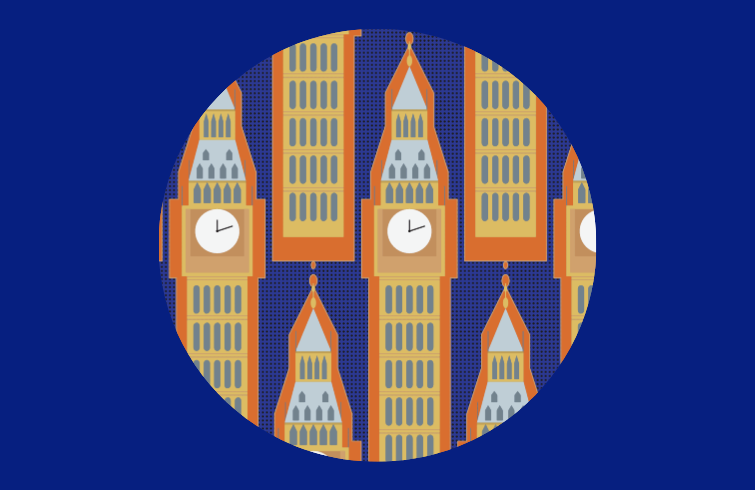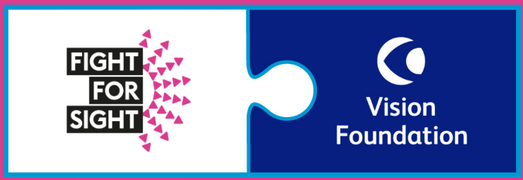
Opening London up
We support projects which educate and influence employers, empower individuals, ensure sports, arts, social and cultural spaces are accessible and work to improve public transport and public safety.

Everyone living, working or visiting London should have access to the rich cultural, economic and social opportunities of our city. In reality, only a quarter of blind and partially sighted working-age Londoners are working. Alongside poor employment, blind and partially sighted people tell us that they face barriers in taking part in physical activity, navigating city streets and engaging in social activities – many things sighted people might take for granted.
BlindAid
BlindAid is expanding and continuing the Share London project which offers blind and visually impaired people the opportunity to access the vibrant social opportunities London has to offer with a local volunteer. We currently have 250 volunteers matched to beneficiaries within the 12 inner London boroughs.
Camden Disability Action
Camden Disability Action: Funding the training of five project leaders to transform the Camden Disability Action Centre in a community connectiveness hub, attracting up to 300 members.
The leaders will run projects in the Greenwood Centre, including the music and pod cast room, art room and conference room, garden and IT digital hub and café to run projects they are passionate about to reach the sight loss community to overcome loneliness and isolation.
Intergenerational Music Making
Intergenerational Music Making: The core purpose of our project is to create a vibrant and inclusive intergenerational experience in Islington, Westminster, Hackney, Southwark, and Tower Hamlets.
Through five distinct intergenerational initiatives, each spanning 10 weeks, we aim to address loneliness and isolation among blind and partially sighted individuals.
These projects will take place in community centres, care homes, sheltered accommodations, and church halls, fostering meaningful connections between generations, promoting social engagement, and ultimately enhancing the wellbeing and quality of life for our beneficiaries in these London boroughs.
Look UK
Look UK: This funding will support the recruitment of a London Mentor scheme officer, who will be responsible for leading the London branch of Look’s highly successful young person’s mentoring programme.
Young VI people in different stages of education are matched with appropriate mentors with lived experience, who offer advice, support, and sometimes training opportunities and workshops.
Metro Sports and Social Club
Metro Sports and Social Club (Metro Blind Sport): Metro will create and implement an activity programme for VI people in London to fight loneliness and isolation.
The programme will revolve around a calendar of 12 low intensity, high impact activities. We will target our less active members who are less suited to competitive sport.
Sutton Vision
Sutton Vision: The project will reduce isolation and loneliness by increasing social connection for blind and partially sighted people through one to one befriending (telephone and community based) social / interest and peer support groups by utilising the skills of staff and volunteers with lived experience of visual impairment.
The Royal Society for Blind Children
The Royal Society for Blind Children: The project will reduce loneliness and isolation affecting blind and partially sighted children and young people (aged 8 – 25 years) living, working in or visiting London by focusing on the following:
- Activities building connections and friendships
- Raising awareness of sight loss and RSBC services available in London
- Influencing change in London through RSBC’s Youth Forum
Grants supporting employment
As part of our Centenary celebrations in 2021, we launched a £1 million appeal to address the shockingly low employment rates for blind and partially sighted people in the UK. Part of this commitment was to provide grants to impactful projects which addressed the barriers to employment faced by blind and partially sighted people. We are pleased to say that over two funding cycles, we have provided funding of £344,956 to 10 fantastic employment-focused projects in London below:
Blind in Business
Blind In Business is supporting 20 under 25s into employment through training and confidence building.
In October 2022 we are providing additional funding for Blind In Business to expand their employment project to NEETs: young people aged 17 and up who are not in education, employment or training. With this funding they will support five young people per year, for two years.
Croydon Vision
Croydon Vision: The ‘Forging a Sustainable Community’ programme will upskill people with sight loss in Croydon, and advise employers how they can make low-cost adaptations or use assistive technology more effectively in the workplace.
Deafblind UK
Deafblind UK: A 12-week programme of activity which will build confidence for those, 18-60, with sight and hearing loss, seeking work.
Middlesex Association for the Blind
Middlesex Association for the Blind (MAB): Towards the delivering of an 8-week course to get visually impaired people of all ages in London work ready, with ongoing coaching and mentoring support.
RNIB
RNIB: To help visually impaired people of working age to retain & progress their jobs after sight loss, with the support of RNIB’s full-time London Employment Advisor.
Solace Women's Aid
Solace Women’s Aid: Levelling Up, Cultivating Empowerment (LUCE) is a pilot project that aims to create readiness within Solace’s Advice Line by providing sight loss training to staff as well as recruiting six blind and visually impaired volunteers to become Advice Line support volunteers, growing their skills and experience in this field in the hope of hiring one or more of the women at the end of the placement.
The intention is to create a special section of their Advice Line, focused exclusively on providing holistic support for blind and partially sighted (BPS) victims/survivors. They will also use this journey as a blueprint to share with and encourage other employers to be more inclusive of BPS people.
